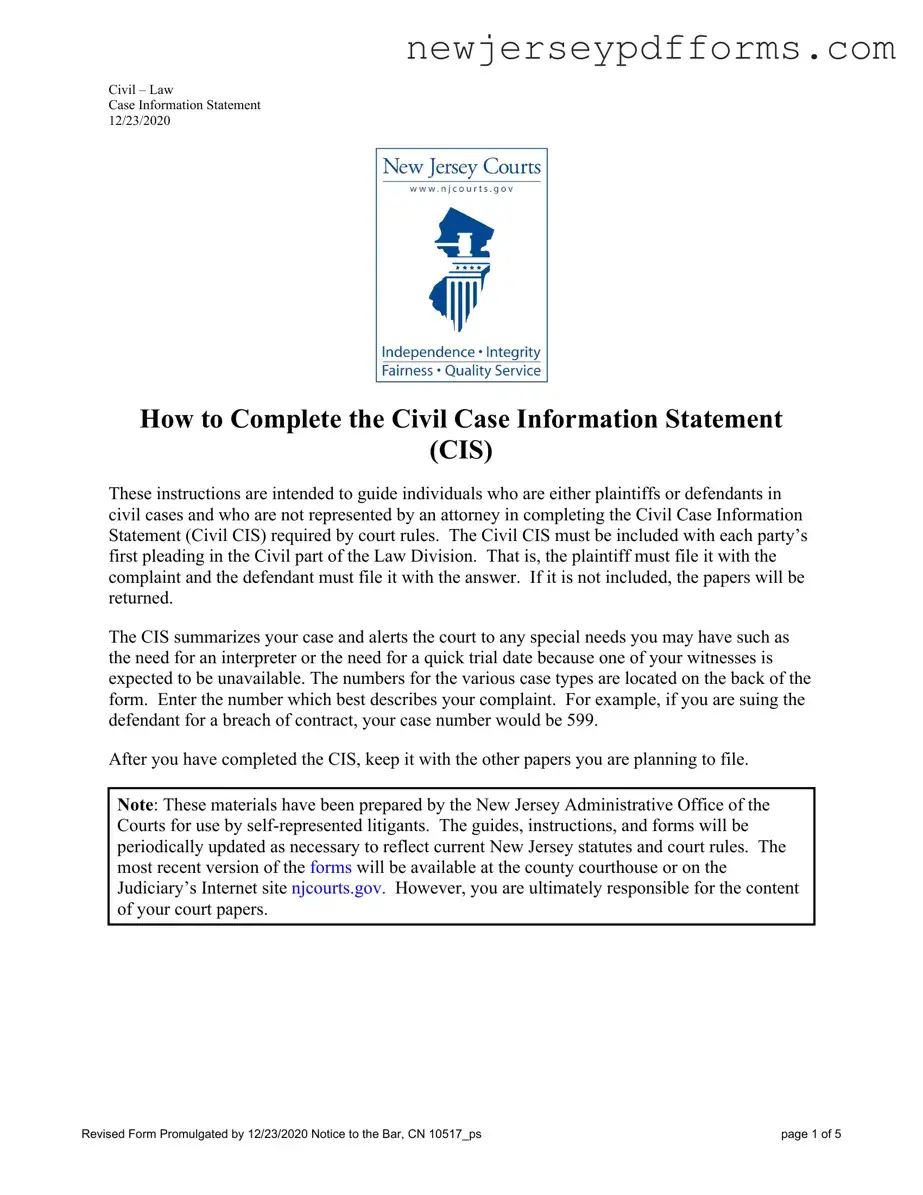The New Jersey Civil Case Information Statement (CIS) serves a similar purpose to the Federal Civil Cover Sheet. Both documents are required to accompany initial filings in civil cases. They provide essential information about the case, including the names of the parties involved, the nature of the complaint, and any special needs or requests. The Federal Civil Cover Sheet helps the court organize and manage cases, while the CIS does the same within the New Jersey court system. Each document ensures that the court has a clear understanding of the case from the outset.
When engaging in vehicle transactions, it’s essential to utilize the appropriate documentation to ensure an efficient and legal transfer of ownership. Among the necessary forms, the Pennsylvania Motor Vehicle Bill of Sale form stands out as a critical component in this process. It not only provides essential details about the vehicle and the parties involved but also serves as a formal proof of purchase. For those seeking a convenient way to obtain this document, resources like PDF Document Service offer templates that can streamline the process.
The Complaint for Divorce form shares similarities with the New Jersey CIS in that both are used to initiate legal proceedings. The Complaint for Divorce outlines the specific reasons for the divorce and the relief sought, while the CIS summarizes the case details and alerts the court to any special needs. Both documents must be filed at the beginning of the legal process and are crucial for the court's understanding of the issues at hand.
The Small Claims Complaint form is another document that resembles the CIS. Both are designed for individuals representing themselves in court. The Small Claims Complaint outlines the claim being made, while the CIS provides a broader overview of the case. Each document requires basic information about the parties and the nature of the dispute, helping the court to efficiently process cases.
The Landlord-Tenant Complaint form also has similarities with the CIS. Both documents are used to initiate legal action, particularly in civil matters. The Landlord-Tenant Complaint specifies the issues between landlords and tenants, such as eviction or rent disputes, while the CIS provides a general overview of the case. Each document helps the court understand the nature of the dispute and the parties involved.
The Personal Injury Complaint form is akin to the CIS in that both are filed at the beginning of legal proceedings. The Personal Injury Complaint details the nature of the injury and the compensation sought, while the CIS provides an overview of the case and any special requests. Both documents are essential for the court to comprehend the case and manage it effectively.
The Motion for Summary Judgment form is similar to the CIS, as both documents are part of the civil litigation process. The Motion for Summary Judgment seeks a decision based on the evidence presented without going to trial, while the CIS outlines the case details and any special needs. Each document plays a role in ensuring that the court has the necessary information to proceed with the case.
The Petition for Name Change form shares characteristics with the CIS in that both documents require specific information to be submitted to the court. The Petition for Name Change outlines the reasons for the name change, while the CIS provides an overview of the case and any related requests. Both documents help the court to understand the context and details of the matter being presented.
Finally, the Certification of Service form is similar to the CIS as both documents are part of the court filing process. The Certification of Service confirms that all parties have been notified of the filings, while the CIS summarizes the case details. Each document is crucial for maintaining proper court procedures and ensuring all parties are informed about the case status.

